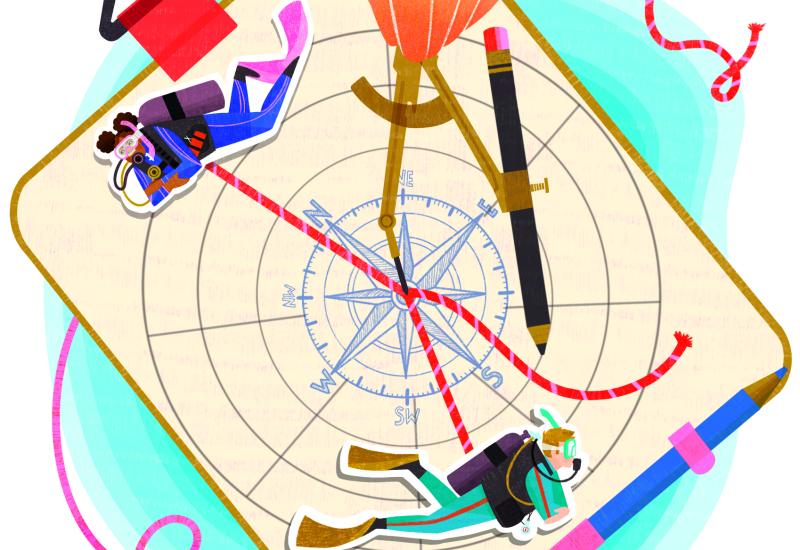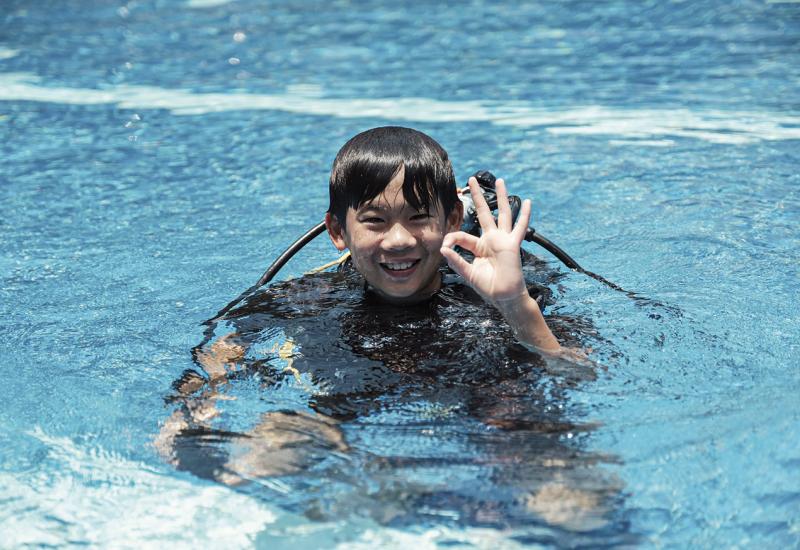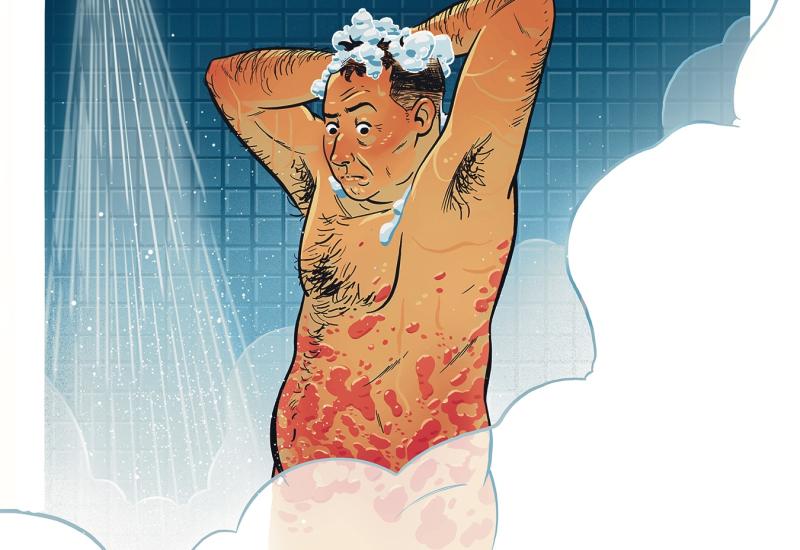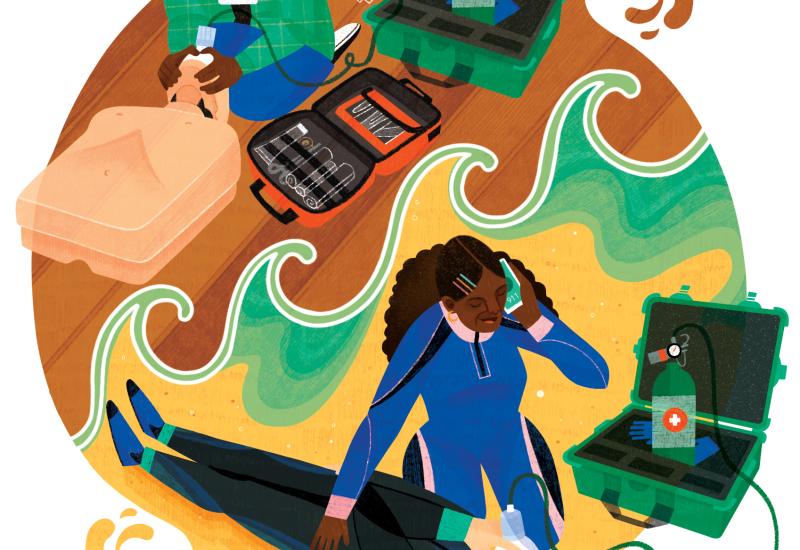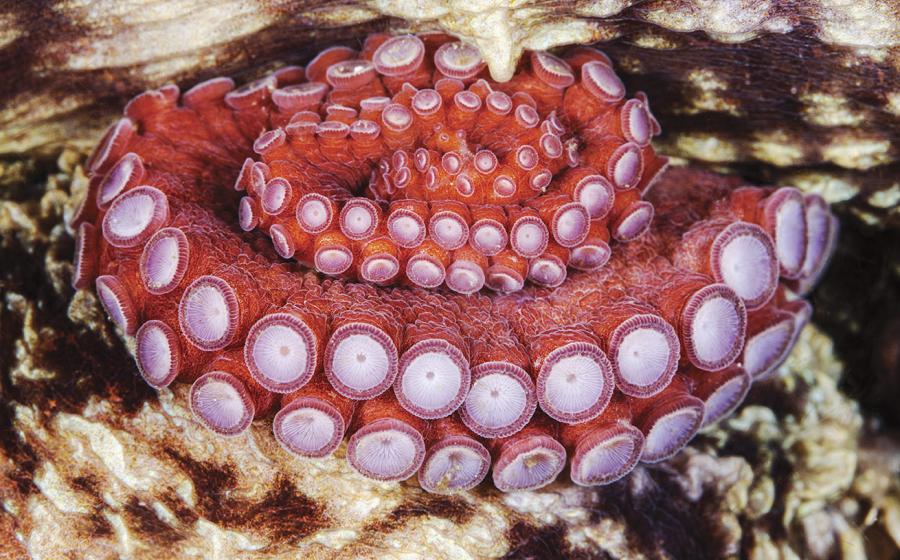How To Stay Calm and Avoid Panic While Scuba Diving
How to recognize, manage and survive panic while scuba diving.
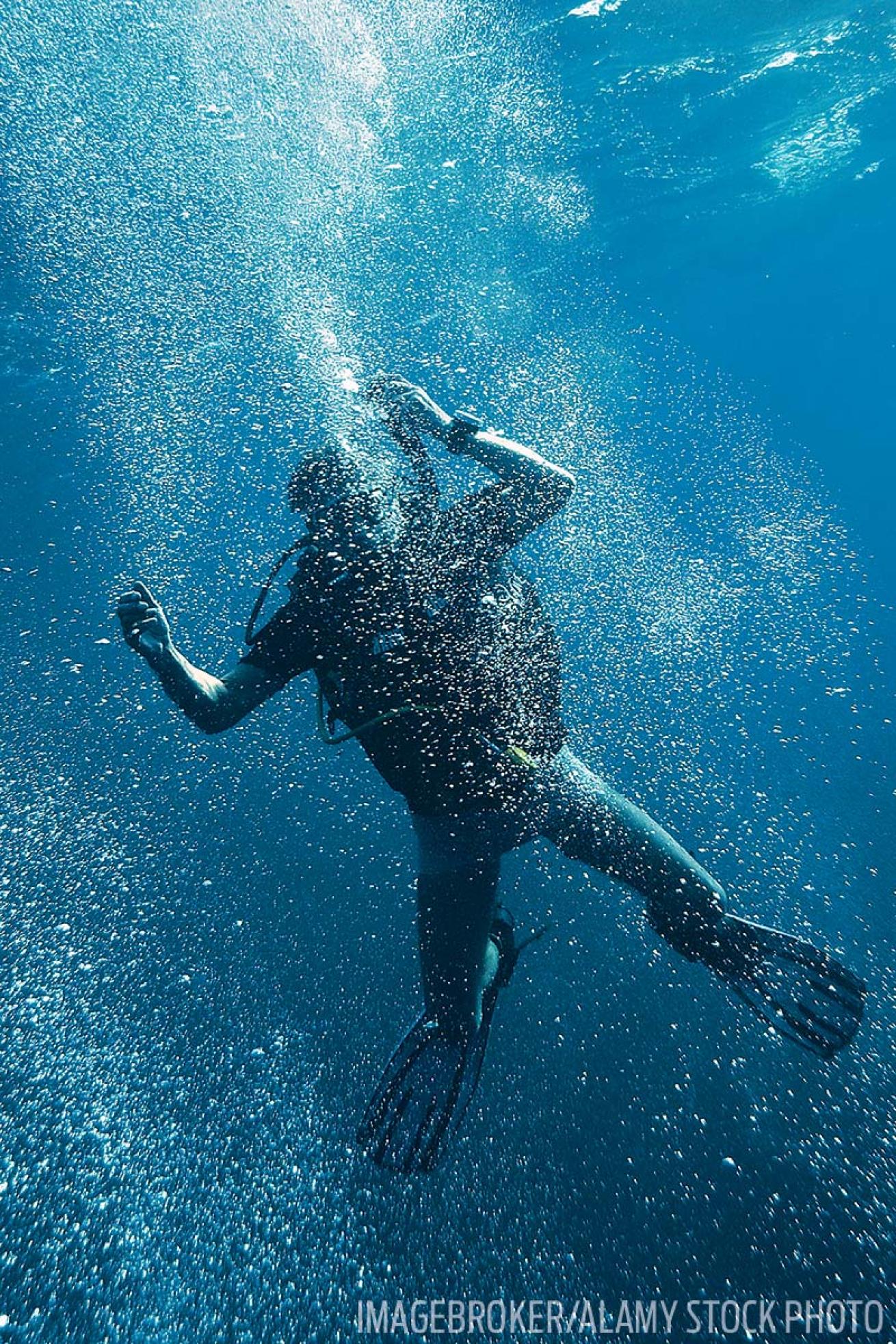
Imagebroker/Alamy Stock PhotoLearn how to keep calm and keep scuba diving with these tips for avoiding panic underwater.
It can happen in an instant. Something feels wrong. A sense of uneasiness spikes into full-blown fear. Quick, shallow breathing. Machine-gun pulse. Scrambled judgment. Panic can strike any scuba diver, no matter their training or experience. But there are ways to prevent and manage this sudden, uncontrolled attack of anxiety that can easily lead to death.
“Generally, panic occurs when somebody is not prepared to conduct the dive that they are on,” says underwater explorer and technical instructor Jill Heinerth. “Prior to a dive, I ask myself the question, ‘What could possibly go wrong on this dive?’ Then I mentally walk through each scenario in my mind. Then I can enter the water prepared to solve any issue ahead without stress.”
“All instructors have witnessed more panic and assisted more divers past it than we care to remember,” says Kell Levendorf, dive accident investigator for Dive & Marine Consultants International. “Learn the warning signs. Take a rescue-diver course. And train until your skill set allows you to assist if possible — or defend and escape if necessary.”
“The main thing a diver needs to learn is to recognize stress, because stress, if not controlled, leads to panic, and panic generally leads to death,” says Edd Sorenson of Cave Adventurers in Marianna, Florida, a cave and rebreather instructor who also is a cave search-and-rescue expert. “I teach my students to recognize stress in their dive buddy first, because once stress turns to panic, it’s too late.”
PREVENT THE TRIGGERS
There are many stress factors in scuba diving that can lead to panic. By understanding the precursors and taking steps to avoid or mitigate them, divers can greatly reduce risk. “In most cases, divers panic when they are in a situation that’s beyond their experience or training level, or become complacent and stop paying attention,” says Sorenson. “The three most common stress precursors are time, gas and distance. And it’s typically a domino effect. Something goes wrong, and if it’s not controlled, you start to get perceptual narrowing, and the next domino is going to fall and then the next. If you can’t stop it, they’re all going to fall.”
“Task loading, along with environmental factors such as current, visibility and marine life, are common triggers for panic,” Levendorf says. “Others include failure to purge the second stage of water and inhaling it, loss of direction due to reduced visibility, and getting lost or separated from your buddy.”
“Divers should perfect buoyancy skills and ensure they are not overweighted, because things are much easier to deal with when you find your buoyancy and trim first,” Heinerth says. “You’ll be unlikely to escalate a dangerous situation if you have good buoyancy, situational awareness and a frank understanding of your skills and limits. Self-sufficiency is critical.”
READ THE SIGNS
Victims of stress often show common visual cues that can be easily read by other divers.
“Pay attention to what your dive partner looks like, so you’ll notice when their buoyancy, trim or breathing frequency starts to deteriorate,” says Sorenson. “When their breathing becomes more erratic or more frequent, you’ve got a diver going into stress. In an overhead or deep environment where it’s dark, failure to respond to light signals is another sign.”
“The eyes are both the windows to the soul and the overriding clue that panic is imminent,” Levendorf says. “Eyes that are wide and unseeing, followed by the inability or refusal to perform even the simplest task, are strong indicators that a diver is panicking.”
TAKE A POSITION OF POWER
To assist a panicking diver, other divers should resist the urge to move in quickly. A simple protective protocol can prevent injury to the diver, as well as the would-be rescuer.
“Panicking divers usually have their hands out, grasping for you,” Sorenson says. “Their elevated adrenaline level, fueled by their anxiety, gives them super-human strength, so you’re going to lose a physical contest no matter what your size advantage.”
Sorensen recommends a strategy that gives the rescuer leverage and protection. “By simply reaching out with your left hand and grabbing their right arm at the bicep, their left hand can’t come across and reach you if your arm’s extended straight out when you offer the regulator with your right hand,” he says.
“Place yourself in a position that gives you power — to assist or to defend,” Levendorf says. “A reassuring touch can provide a lot of comfort to a panicking diver, but make sure you are still able to stiff-arm a diver to defend yourself if necessary.”
USE YOUR HEAD
In the event of panic, one of the most basic tenets of dive training becomes paramount: Stop, breathe, think, act.
“You cannot let emotions overcome common sense and reason,” says Heinerth. “Shift your mindset back to the solutions-oriented thinker who can take one step at a time. You can always come up with the next best step, and you will find success.”
AN UNRECOGNIZED TRIGGER
Jill Heinerth on a condition every scuba diver should know about: immersion pulmonary edema.
“There is very little awareness in our community about the condition called immersion pulmonary edema (IPE). This condition can quickly lead a diver to believe that their regulator is not functioning. A diver can panic and rush to the surface or panic on the surface from inability to breathe. The condition can resolve so quickly that a physician might not detect the issue after the dive. These undiagnosed divers can have multiple episodes and get written off as ‘panickers.’ However, they might have a very real physiological issue that leads to IPE. I hope more people can learn about this affliction and the symptoms. Never write off a diver as a someone prone to panic. They might have a very real medical condition.”
For more information on IPE visit diversalertnetwork.org.

